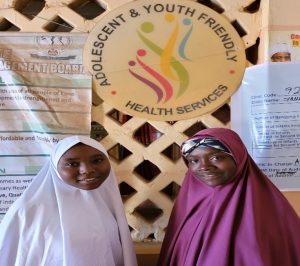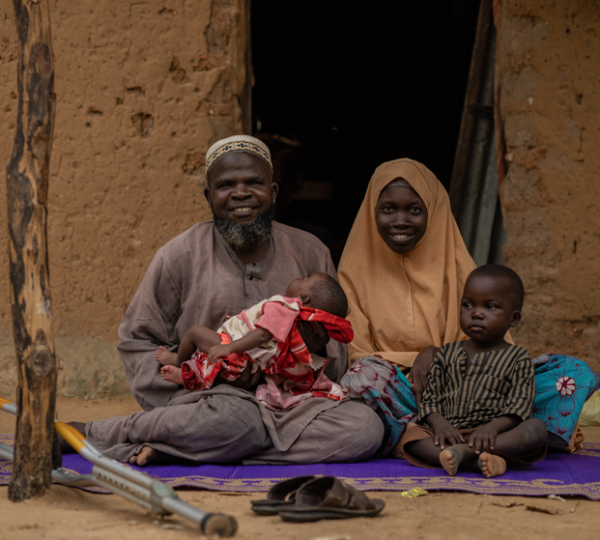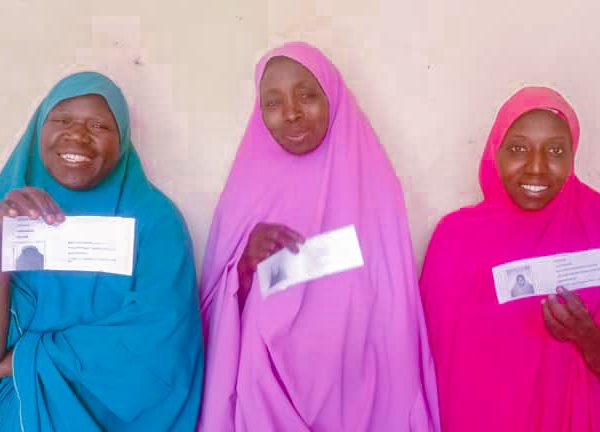Harmful traditional practice confronted through safe space sessions in a secondary school

By Uzaifa Ahmad and Nabila Ismail
Girls Secondary School Yandadi in Kunchi Local Government Area of Kano State was among the 11 secondary schools selected for the Lafiya ASRH-ECD Intervention. The school has a total of 582 Students. Two SS3 students, (Khadija Abdullahi Musa and Hafsat Salihu Yusuf) and two staff, were selected to be trained during the Lafiya ASRH-ECD Intervention. The adolescents and staff were trained as facilitators to lead discussions in school with their peers and students about ASRH issues and how to access services for their benefit. This training was carried out in partnership with the State Ministry of Education – Safe Space intervention on selected key modules which include Life Management Skills and Behavior Change, Adolescent Sexual and Reproductive Health Issues and Promotion of Personal Hygiene. This provided the students with a platform to speak with their guidance and counselling teacher about their menstrual hygiene issues.
It was after these sessions that a group of 30 students between the ages of 17-19 years met their Guidance and Counselling (G&C) teacher in the person of Zainab Sa’idu, with whom they narrated numerous issues regarding their menstrual hygiene. One of the students narrated that she was taken to a traditional healer by her parent to stop her menstrual cycle as her parent claimed that she was too young to start such. Others mentioned their experience of itches, rashes, and discharges before and after their menstrual cycle, these experiences could not be discussed with their parents as existing cultural norms forbids such conversations.
The intervention of Lafiya ASRH-ECD gave the students a clear picture and safe space so that such issues can be discussed at school during the safe space session as the platform enables free and comfortable engagement/discussions without any fear of discrimination or stigma. Prior to this, the students could not access services for the treatment of Urinary tract infections (UTI) because they could not afford to pay for the drugs, but the Lafiya ASRH-ECD influenced the inclusion of ASRH commodities, giving precedence to drugs provision for the syndromic treatment of UTI as essential commodities that were distributed to the focal facilities for the students to utilise. Moreso, the Emir of Bichi, Alhaji Nasiru Ado Bayero facilitated the availability of drugs and commodities across PHCs in their LGA, these were of great benefit to over 30 students who were eventually referred to the facility.
Prior to this intervention, the students heavily relied on harmful traditional and unorthodox medicine for ASRH issues. The traditional herbalist was said to suspend monthly menstrual flow for adolescents until they are ready for marriage. This has been an ancient practice for generations. Through this intervention, the community was empowered with the right information on the normal physiologic functioning of adolescent girls and the need to access orthodox health care services.
Zainab Saidu the G&C teacher said, “ASRH-ECD Lafiya Intervention changes the whole atmosphere because the level of awareness among our students has increased, they are now open on all their personal and menstrual hygiene through the safe space sessions and also the most interesting part is the linkage between the school and the health facility is a good one for us and the entire community. We thank you the partners for bringing this intervention to our community.”
Facility In-charge: Ado Mohammad Bichi –Male – “Lafiya ASRH-ECD Intervention is an excellent intervention that creates awareness in the community because looking at the turn out of clients referred to the facility the figure is increasing and the community and schools are well sensitised on Adolescent Sexual and Reproductive Health from the number of students referred, 30 students! We treated them accordingly, where we noticed that they are suffering from UTI, itches, and rashes, we prescribe drugs and counsel them more as it is our duty as health personnel to do so, we even gave them Disinfectant, Chlorine to wash the school toilets to prevent the spread of the infection.”




